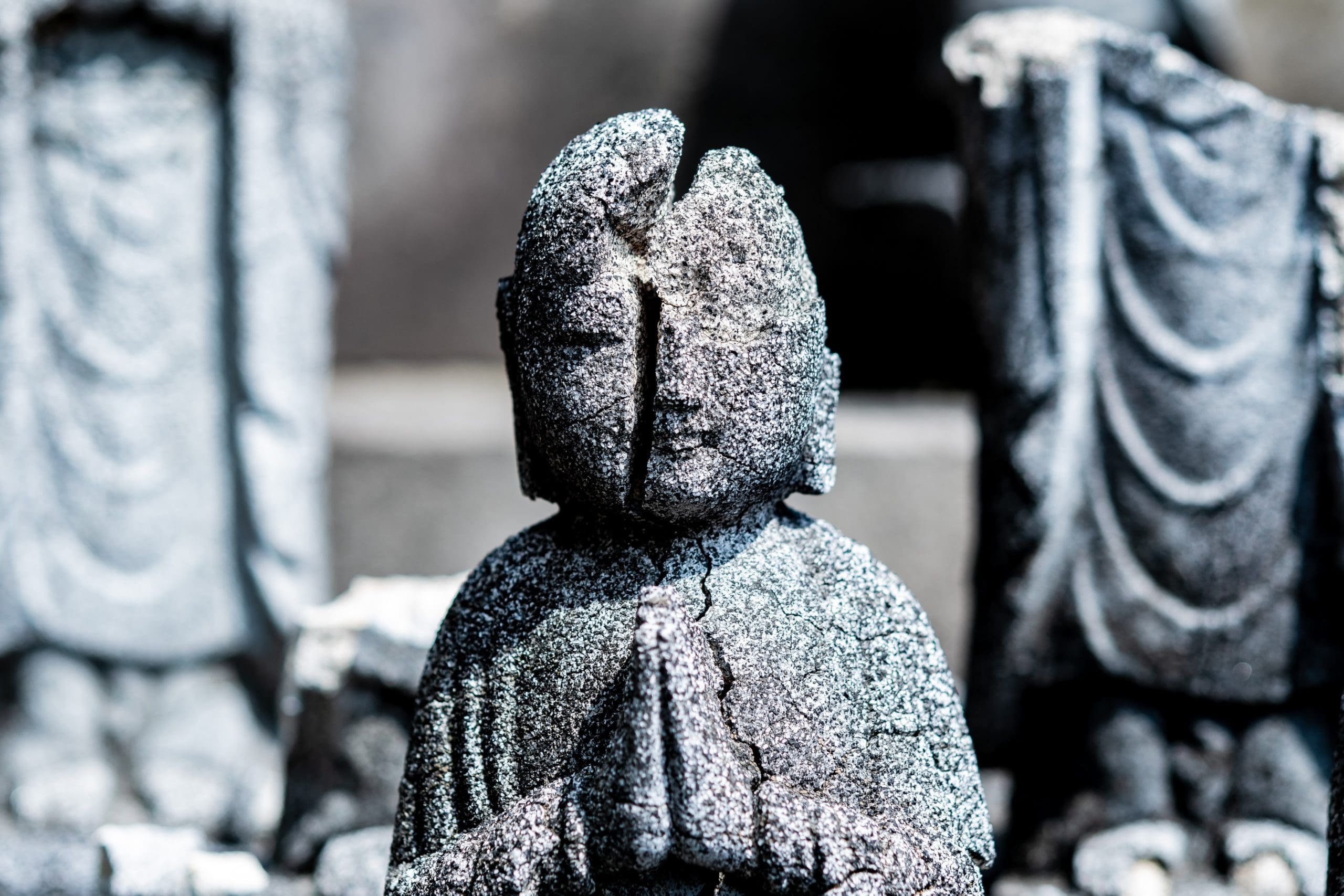Exodus 20:4-5
The Old Testament recounts God’s instructions and rules for His chosen people. God does not come second to anyone or anything. He is first in all things, and this includes any aspect of life. Exodus 20:4-5 tells us that “You shall not make for yourself any carved image-any likeness of anything that is in heaven or above, or that is in the earth beneath, or that is in the water under the earth. You shall not bow doe to them or serve them.”
When a person puts anything before God, they may very well have made a “god” out of it. Meaning, they may worship the “something,” whatever that may be, instead of God, the Creator of all things. For Christ-followers, we are not to make any kind of image or form anything that represents God, or worship any kind of image. Worshiping anything other than God is idolatry. Even the representation of Christ on the cross is not the Christ-follower’s message. In that regard, Philip Graham Ryken says, “Every week we preach that Jesus Christ was crucified for sinners. This is something that we announce from the Scriptures, but it is not something that we hang on our walls. There is an important biblical and theological reason for this: A visual representation of Christ on the cross can become an object of worship and thus violate the second commandment.” This is not to say that any types of paintings or pictures are evil or bad. “The second commandment does not intend to outlaw art or painting or aesthetic considerations…God is not against beauty. What he prohibits is infusing any object with spiritual efficacy, as if man-made artifacts can bring us closer to God, represent God, or establish communion with God.”
The second commandment forbids idolatry. Kevin DeYoung says, “If the first commandment is against worshiping the wrong God, the second commandment is against worshiping God in the wrong way.” Any type of representation of God that is worshiped is wrong. Secondly, worshiping God in the wrong way is also forbidden. In regard to the Israelites, T.D. Alexander writes, “Any attempt on the part of the Israelites to represent God using such images would produce a distorted picture of his true nature.”
Self-Willed Worship
Kevin DeYoung says, “Most generally, the second commandment forbids self-willed worship- worshiping God as we choose rather than as he demands.” The Bible has plenty of examples of people who used some sort of man-made artifact, or something that humans created, for self-willed worship. Of course, the golden calf in Exodus 32 is one of the most well-known examples. The Old Testament is full of different examples of self-willed worship. For instance, the feast of Yahweh is an example. DeYoung says, “Aaron proclaimed a feast to Yahweh, and the people declared that these were the gods who brought them up out of Egypt (Ex. 32:4-5).” Even with good intentions of worshiping God, meaning, the Israelites were not worshiping Baal in the feast of Yahweh, but they were not worshiping God in the right manner. “They were violating the second commandment.” Making sure that God is worshiped the way He requires is vitally important. Similarly, Poythress says, “In the second commandment, God enumerates the ways he does not want Israel worshiping Him, namely through creating some image or likeness of God and worshiping that (though the principle extends much farther).” As mentioned, it is a distortion of God’s true nature. We must worship God in spirit and truth, namely, His truth. Sam Storms writes, “Our worship must be rooted in and tethered to the realities of biblical revelation…Genuine, Christ-exalting worship must never be mindless or based on ignorance. It must be doctrinally grounded and focused on the truth of all we know of our great Triune God. To worship inconsistently with what is revealed to us in Scripture ultimately degenerates into idolatry.”
In conclusion, R.C. Sproul says, “Due to our proclivity toward idolatry, we are to shun any attempt to imagine God apart from His revealed Word. The Lord has the absolute right to reveal Himself as He chooses, and He has chosen not to reveal His Spirit in visible form (Deut. 4:15-31). To attempt to depict the divine apart from Jesus the Christ, however well-intentioned, is to craft an idol and violate God’s prerogative to reveal Himself in whatever manner He so chooses. It also undermines His commands as to how He will be worshiped.”
Hope
There is hope for those who wish to worship God as He commands. We can worship Him in spirit and truth. To best understand, David Mathis writes, “True worship, says Jesus, is in spirit and truth. The ‘truth’ part is plain enough — with the coming of Jesus, that truth centers on his person and work, the one who is himself ‘the Truth’ (John 14:6), and the message about his saving accomplishments for us, which is ‘the word of the truth, the gospel’ (Colossians 1:5). For those who are new creatures in Christ, our spirit owes its existence and vibrancy to the Spirit of God. As John Piper writes, “True worship comes only from spirits made alive and sensitive by the quickening of the Spirit of God. God’s Spirit ignites and energizes our spirit” (David Mathis: desiringgod.org)
Questions
Have you thought about how you approach God in worship? Is it something that has crossed your mind?
Are you approaching God with humility in worship?
Do you have any “gods” that you put before God in worship?
Resources
T.D. Alexander, New Bible Commentary (Editors: G.J. Wenham, J.A. Motyer, D.A. Carson, R.T. France)
Kevin DeYoung, The Ten Commandments: What They Mean, Why They Matter, and Why We Should Obey Them.
David Mathis, “Worship in Spirit and Truth”
Justin Poythress, “The Second Commandment and the Church”
Philip Graham Ryken, Written In Stone: The Ten Commandments and Today’s Moral Crisis
R.C. Sproul “The Second Commandment”
Sam Storms “What Does It Mean To Worship God In Spirit and Truth?”








